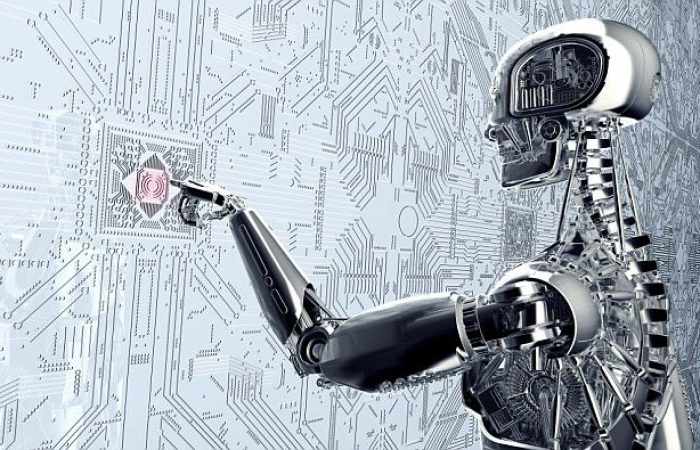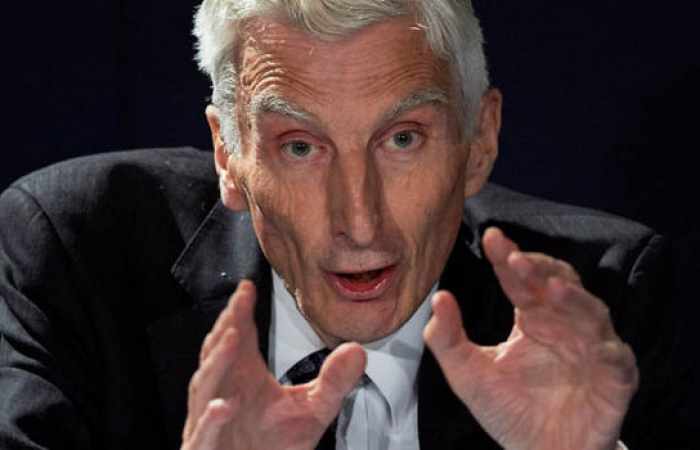He predicts their reign could last billions of years beyond our time on the planet.
Life on Earth has already taken billions of years to evolve, from the proteins and nucleic acids that were the building blocks of life through to more complex mammals and homo sapiens.
But machine intelligence has developed at such an extreme pace, that Sir Martin believes the likelihood is alien life will also take this form.
He sees humanity's time on the planet as an extremely brief transitional phase, between primordial organic life and the era of the machines - what he terms a 'post-human' future.
The cosmologist argues this could extend for billions of years into the future, particularly if machines are able to explore space free from the confines of needing a planet, it's atmosphere and biosphere to sustain them.
And - if we do encounter beings from another planet - it will either take the form of more primitive lifeforms or extremely advanced machine intelligence.
Speaking to The Conversation, Sir Martin said: 'My guess is that if we do detect an alien intelligence, it will be nothing like us. It will be some sort of electronic entity.
'The period of time occupied by organic intelligence is just a thin sliver between early life and the long era of the machines.
'Because such civilisations would develop at different rates, it’s extremely unlikely that we will find intelligent life at the same stage of development as us.
'More likely, that life will still be either far simpler, or an already fully electronic intelligence.'

As to the impact of contact with aliens, Sir Martin believes that this is unlikely - at least in our current form.
The Cambridge professor emeritus believes that while we may be able to peer further out into space, travelling to distant worlds will remain out of our reach until we enter the post-human era.
In his interview with The Conversation, he added: 'The journey times are just too great for mortal minds and bodies.
'If you’re immortal, however, these distances become far less daunting.
'That journey will be made by robots, not us.'
SHOULD AI SCARE US?
Artificial Intelligence has been described as a threat that could be 'more dangerous than nukes'.
Now a group of scientists and entrepreneurs, including Elon Musk and Stephen Hawking, have signed an open letter promising to ensure AI research benefits humanity.
The letter warns that without safeguards on intelligent machines, mankind could be heading for a dark future.
The document, drafted by the Future of Life Institute, said scientists should seek to head off risks that could wipe out mankind.
The authors say there is a 'broad consensus' that AI research is making good progress and would have a growing impact on society.
It highlights speech recognition, image analysis, driverless cars, translation and robot motion as having benefited from the research.
'The potential benefits are huge, since everything that civilisation has to offer is a product of human intelligence; we cannot predict what we might achieve when this intelligence is magnified by the tools AI may provide, but the eradication of disease and poverty are not unfathomable,' the authors write.
But it issued a stark warning that research into the rewards of AI had to be matched with an equal effort to avoid the potential damage it could wreak.
For instance, in the short term, it claims AI may put millions of people out of work.
In the long term, it could have the potential to play out like a fictional dystopias in which intelligence greater than humans could begin acting against their programming.
/Daily mail/
More about: #science
















































